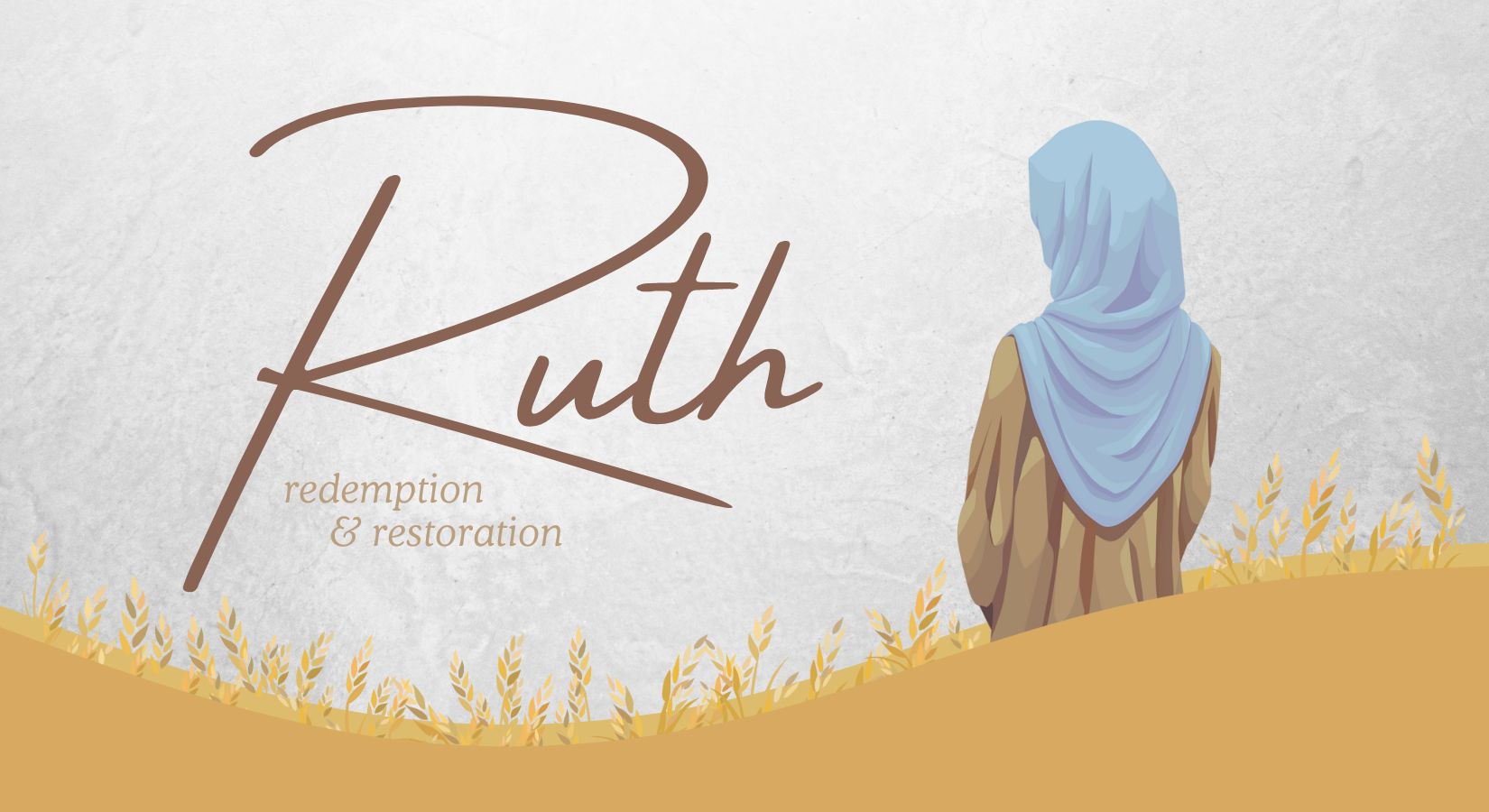
Dear Beloved Church Family,
The book of Ruth is a beautifully crafted short story about a Moabite widow who comes to know the covenant love of the one true God through her Jewish mother-in-law, Naomi. The drama of human actions and divine providence play out in a way that is captivating, instructive, and encouraging.
Over the Coming Weeks, We’ll See:
- The Mysterious Providence of God—In challenging situations and through ordinary people, the LORD is at work even when we can't see or understand it.
- Redemption—The LORD uses Boaz to redeem Ruth and Naomi from their difficult circumstances, and ultimately provides a King from the line of Judah who will redeem all his people.
- Faithfulness, Kindness, and Compassion—On both the human and divine levels: Ruth remains loyal to Naomi, Boaz shows compassion to them both, and God is faithful to his own promises (Gen 49:10, Matt 1:1-17; Luke 3:23-38).
Prepare your hearts and minds by taking 15 minutes to read through the whole book each week for the next four weeks!
See you Sunday.
Quick Info on the Book of Ruth
- We do not know for certain who wrote Ruth or when it was written (perhaps between 950 to 700 BC?)
- The narrative takes place during the "time of the judges," a period in Israel's history between the conquest of Canaan and the establishment of the monarchy, which is generally dated from around 1400 BC to 1050 BC. This dark, violent period is characterized by a recurring cycle of rebellion, judgment, and deliverance, as recounted mostly in the book of Judges.
- The central conflict in the book of Ruth focuses on Naomi's sorrow and emptiness. She's been left without a husband or sons to protect and provide for her. Yet through the faithful kindness of Ruth, God introduces Boaz who would provide for them both.
- The genealogy at the end traces Ruth's inclusion in the lineage of King David, highlighting God's over-arching redemptive design. Death itself would not prevent him from providing a King from the line of Judah. David anticipates a greater descendent—the Lord Jesus Christ.
- Ruth is placed in different positions within the various lists of the Old Testament. There is no consensus about which was the original order, but each highlights different elements of the book.
— In the Septuagint, it was positioned between Judges and 1 Samuel, which places it within its historical context of the judges.
— In various Hebrew lists, it was placed just before the Psalms (largely written by King David) or just after Proverbs (highlighting Ruth as a "worthy woman" from Prov. 31).
Suggested Outline
- Overture and Act 1: Misery, Emptiness, and Yet Hope (1:1–22)
- Act 2: Finding Favor in the Fields of Bethlehem (2:1–23)
- Act 3: The Promise of Redemption (3:1–18)
- Act 4: Satisfaction and Fullness (4:1–17)
- Coda: The Genealogy of the Royal Line (4:18–22)
Characters
- God: Referred to in three ways (1) elohim: general reference to deity; (2) Yahweh: personal, covenantal name; (3) Shaddai: Almighty, Most Powerful
- Elimelech (my God is king): Husband of Naomi, father of Mahlon and Chilion (Ruth 1:3; 4:9). From the tribe of Judah. Took his family to Moab during a famine in Bethlehem. He died there, along with his two sons.
- Naomi (pleasant or sweet): Ephrathite from Bethlehem. The wife of Elimelech and the mother-in-law of Ruth. The main character around whom the narrative revolves.
- Mahlon (weakness): Ephrathite. Son of Elimelech. Went to Moab from Bethlehem in Judah. Mahlon dies in Moab, making Ruth a widow
- Chilion (wasting away): Ephrathite. Son of Elimelech. Went to Moab from Bethlehem in Judah. Mahlon dies in Moab, making Orpah a widow.
- Orpah (stiff-necked?): From Moab. Widow of Chilion, Naomi’s son, who returned to Moab when her husband died.
- Ruth (friend or companion): From Moab. The widow of Mahlon and wife of Boaz. Great-grandmother of King David.
- Boaz (in him there is might): A wealthy, godly relative of Naomi’s deceased husband, Elimelech. He married Ruth and became the father of Obed and the Great-grandfather of King David.
Memory Verse - Ruth 1:16
But Ruth said, “Do not urge me to leave you or to return from following you. For where you go I will go, and where you lodge I will lodge. Your people shall be my people, and your God my God. (ESV)